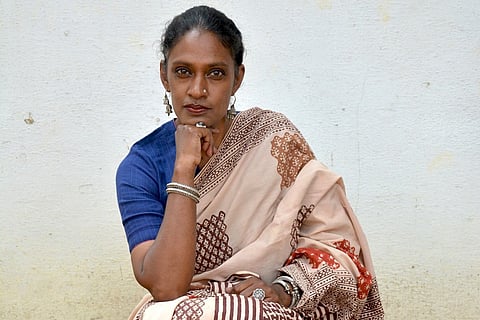

Among the worst casualties of the COVID-19 pandemic is India’s handicrafts sector, which has been crushed due to a lack of demand, rising stockpiles and no cash flow. The handicrafts industry is the second largest rural employer after farming, and the pandemic has left its stakeholders in the lurch as travelling to sell their wares at exhibitions or liquidate their existing stocks became impossible.
However, thanks to technology, new avenues have popped open to help boost these businesses. And one such portal is India Handmade Collective, which was launched in November 2020 as an e-commerce platform for Indian handicrafts, particularly handspun, handwoven and ethically made textile products. The collective describes itself as a ‘social enterprise’, but works exactly like an e-commerce clothing portal such as Myntra, Jacob etc. The only difference is that, instead of selling multinational clothing labels, it offers sustainable, handmade and ethically produced goods by small scale manufacturers on sale. So if you find H&M, Mango, Zara and Dorothy Perkins on a regular e-commerce portal’s list of brands, on India Handmade Collective, you will find a list of not-for-profits supporting artisan groups such as weavers, spinners and natural dyers from across the country.
“Clothes are not an essential commodity. And during the pandemic, the stores shut down and sales completely dropped. The weavers and spinners who were depending on retails stores were completely crushed. India’s handloom sector employs the most number of people — over 25 lakh weavers, and over 70% of them are women. Imagine all of them collectively going out of business? That is what the pandemic did,” explains Malini Kumar, who along with husband Suresh Lakshmipathy, operates the not-for-profit portal.
Most weaver groups travel across the country to sell their textiles at exhibitions. However, the lockdown put a stop to their travels. When the lockdown lifted, demand was still slack and shops were empty. “For these weavers and spinners, bigger online markets were not an option as they ask for a 10% listing fee and a 30 to 40% commission on the products. So that avenue was cut off,” Malini explains.
This is when Chennai-based entrepreneur Ananthasayanan, who founded Tula, a small store which works with cotton farmers, suggested launching an e-commerce portal with a difference. This led to the India Handmade Collective. And what started as an idea in August is now livel with over 25 brands (member organisations), 1000 listed products and supporting 5000 weavers.
Some of the Collective’s most interesting brands include the Huzurabad Weavers of Karimnagar in Telangana, who specialise in weaving delicate cotton mosquito nets. “It is a highly labour intensive job as the material is cotton and needs to be woven, unlike the nylon mosquito nets we get in stores.” Malini says. Another label called Usha Ethos offers clothes made of brown cotton which is handspun, woven and naturally dyed, making it 100% sustainable.
“Some of our products are handmade, the others are naturally dyed. Natural dyes are again labour intensive, and are more expensive. To colour 1 kg of yarn with natural dye costs anywhere between Rs 600 and 1000. But the same thing with chemical dyes can be done with Rs 50 or 60. However, chemical dyes can pollute the rivers whereas natural dyes are sustainable. We are looking at these costs too while promoting natural and sustainable products,” Malini adds.
Dharmapuri-based Porgai is another interesting nonprofit which works with Lambadi tribal weavers who focus on embroidery. The Lambadi style of embroidery involved stitching in colourful mirrors, coins and beads on to the clothes and Porgai profits are funneled back into the Lambadi community.
The Collective now aims to promote their wares and add more ethically-functioning brands to the portal. “In a way, we also want to educate those who land up on our page about handmade clothing and create awareness amongst consumers about the situation of the grassroot stakeholders,” Malini adds.
The website went live on November 27 and was launched by actor Revathy, with a social media launch by actor Karthi. Check out the online store here.